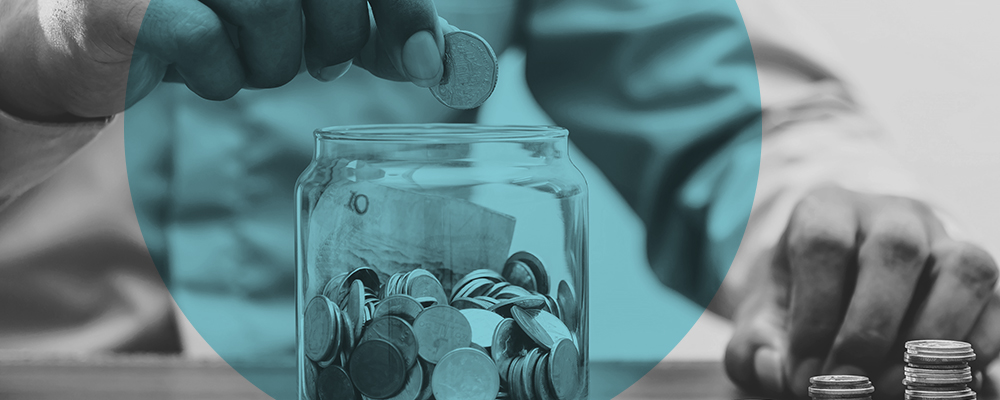How to Save Money for a Rainy Day and Emergency Fund

Saving money can be a challenge. However, setting aside money for a rainy day or emergency fund can be advantageous if you encounter an unexpected cost. Even if you’re cash strapped, there are still smart choices you can make. Wondering how can you get started? Before we review the ways you could potentially save, let’s clarify the differences between a rainy-day fund and an emergency fund.
Rainy Day Fund vs. an Emergency Fund
For many people, rainy day funds and emergency funds are interchangeable terms. However, a rainy-day fund is usually for “smaller” emergencies ($2,500 or less) such as a car or home repair. An emergency fund is often for a significantly higher amount of money such as several months of living expenses, including monthly rent or mortgage, vehicle payments, insurance, utilities, food and more. Of course, how much you set aside is largely dependent upon your unique financial situation or what you need to live on comfortably if there is ever an emergency.
Now about those money-saving ideas…
Save Your Change
Even in today’s increasingly cashless society, a few cents here and there can add up over time. As long as you stay disciplined, you may be able to turn your piggy bank savings into a considerable amount of money for a future unexpected expense.
Keep Your Coupon Money
Do you use coupons when you shop? If you do, you can take the money you saved and put it in an interest-bearing savings account. The better you get at couponing, the more money you can potentially save!
Take Advantage of Discounts
Ask if any promotions or discounts are available on the goods or services you purchase. It may net you a few extra dollars. Special pricing is often available for students, teachers, military, AAA members, and seniors. If you are any of these, it never hurts to ask if a discount is available.
Perk up Your Savings
We’ve all heard how making your morning coffee at home can save you money. But if you still like your morning cup of joe, then why not buy a bag of coffee beans from your local coffee shop and brew it at home? You’ll still be supporting local business, while saving money. If you do find yourself at a drive thru, consider a smaller cup of java rather than a more expensive latte. You’ll be saving calories and cash!
Be Economical with Your Meals
By purchasing generic brands vs. name brands and avoiding impulse buys, you can save even more cash. This could help stretch your food budget and potentially allow you to apply the money saved to your rainy day or emergency funds.
Have a Garage Sale or Yard Sale
Do you have a boat or an older car that is gathering dust in the garage? Having a garage or yard sale can take items you longer need and turn them into cash. Also, the items that do not sell can be donated to a local charity for a tax credit that may help your financial situation. (Please consult your tax advisor for more information.)
Other Money-Saving Tips
Do you have any credit card reward points that can be converted into cash or gift cards? Have you considered cancelling any auto subscriptions to services you don’t use or could live without? If you have a tax refund coming, why not take all or a portion of it and put it toward your savings? Regardless of where you slash spending, having a budget allows you to see where your money is going and how you can potentially save.
Thinking about Refinancing?
With today’s historic low interest rates, refinancing your mortgage is a great way to save money or pull out cash from your home. Whether you’re thinking of buying a new home or refinancing your existing mortgage, contact the New American Funding team today. Let them walk you through the home buying process and help you stay on track with your homeownership goals.
